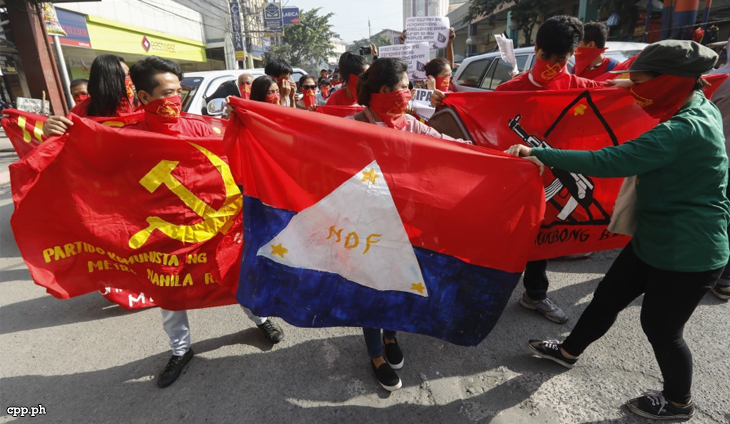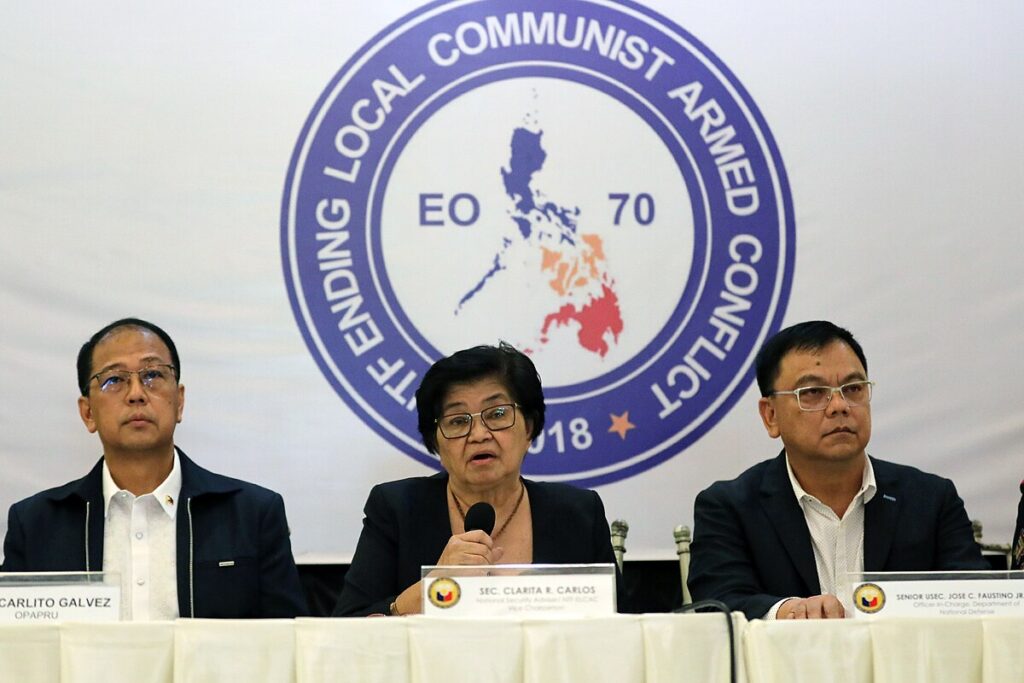Desperate to prove he is different from his predecessor, President Bongbong Marcos recently established an amnesty program for members of the Communist Party of the Philippines (CPP), the New People’s Army (NPA), and the legal mass organisation, the National Democratic Front of the Philippines (NDFP).
The intention evidently is to portray himself as a benevolent, peace-loving leader different from his predecessor, former President Rodrigo Duterte, who garnered international condemnation for his militaristic approach to the communist rebellion.
However, in fleshing out the details of his amnesty program President Marcos inadvertently showed that his perception on attaining peace is no different from Duterte himself.

Under Proclamation 404, amnesty may be granted to former members of the CPP, NPA and NDFP who have committed offences under the Revised Penal Code (RPC) and Special Penal laws in furtherance of their political beliefs.
These offences include, but are not limited to disloyalty of public officers or employees; sedition; illegal assembly; illegal association; and disturbances of public order. Such violations are non-violent and should not have been treated as crimes in the first place, but under Marcos’ amnesty program individuals currently detained for said offences may be granted amnesty if they admit guilt.
What is problematic about this premise is that it does not differentiate between armed and non-armed rebellion. It also conflates the rebellion with mere activism, a reality that became familiar for Filipino activists during the Duterte regime and continuing into the current Marcos administration.
It also forces would-be amnesty grantees to incriminate themselves simply to attain freedom, even if they should not have been detained in the first place. The program also offers no protection against civil suits once the applicant has incriminated themselves.
Proclamation 404 also does not guarantee any mechanism to validate testimonies amnesty applicants divulge to the state – giving them a free rein to fabricate stories to secure amnesty for themselves while falsely implicating others.

Such a regime would only encourage a culture of red tagging and lead to greater persecution of non-violent activists. According to human rights group Karapatan, there have already been 49 cases of politically-motivated arrests under the Marcos administration and there are fears that number will worsen due to this phony amnesty program.
Above all, President Marcos’ amnesty program is problematic because it focuses on yielding surrenderers rather than addressing the root causes of the conflict. Proclamation 404 merely creates conditions for CPP-NPA-NDFP members to acquiesce to the Government, but does nothing to prevent new rebels from taking up arms against the state in the future.
It does not address the worsening food insecurity experienced by Filipinos in the provinces. There is no provision within Proclamation 404 that addresses landlessness, or the abuse of small-scale farmers by large comprador bourgeoisie landlords.
If these issues are not addressed, the rebellion will never cease. Surrendering rebels under this amnesty program will only be replaced by Filipinos who continue to suffer systemic abuses by the state and the ruling class.
Hence why Marcos’ Proclamation 404, allegedly promising amnesty to communist rebels, is a sham. It is merely a plot to create the illusion that President Marcos is doing something to forge peace in the Philippines, when in reality he is trying to improve his image in the international community.
Perhaps the spin-doctors in the Marcos administration can rebrand it as a “sham-nesty” program instead, because the notion of Proclamation 404 being an amnesty program to promote peace is a mere sham.

